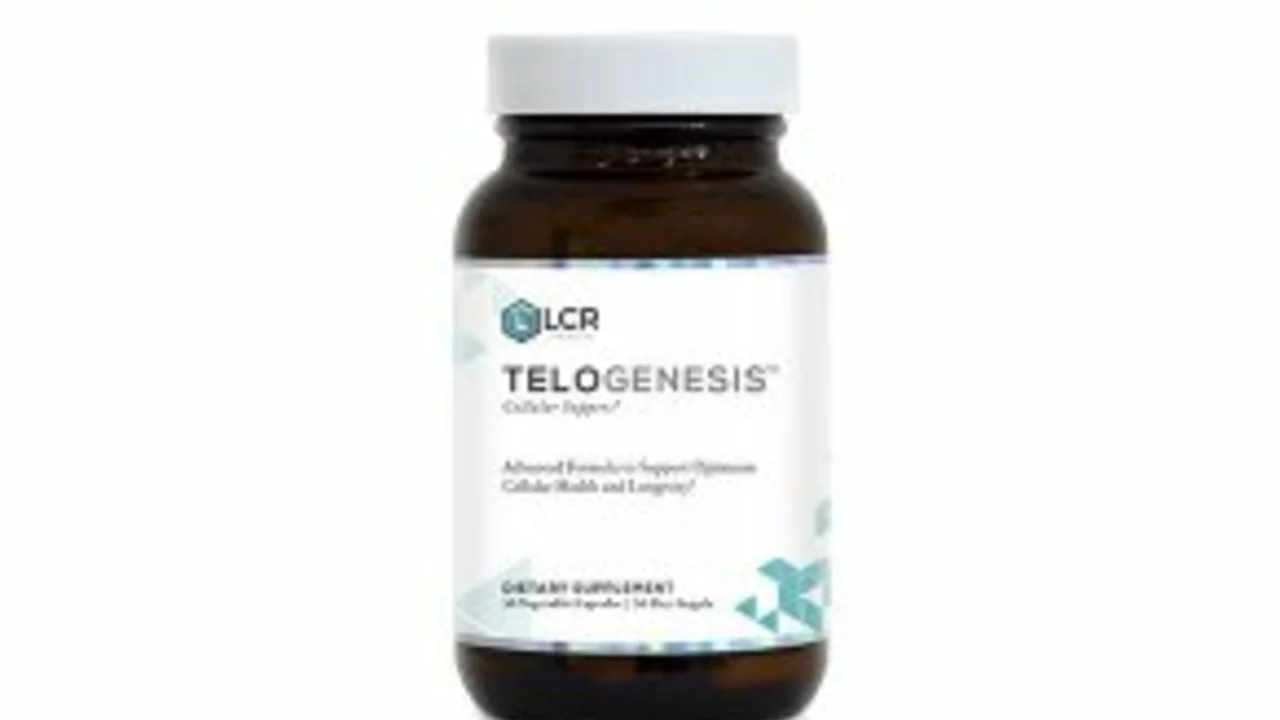Understanding the Basics of Chinese Club Moss
Let's start with the basics. Chinese Club Moss, also known as Huperzia serrata, is a type of moss that grows in Asia. This plant has been used in traditional Chinese medicine for centuries, but it's only recently that science has begun to understand its potential health benefits. A key component of Chinese Club Moss is a compound called Huperzine A, which has been shown to have a host of exciting properties. So, before we dive into the science behind this dietary supplement, let's get to know this ancient plant a little better.
The Power of Huperzine A
Huperzine A is an alkaloid found in Chinese Club Moss. It's a powerful substance that can support brain health and improve cognitive function. Huperzine A works by inhibiting an enzyme called acetylcholinesterase, which breaks down a neurotransmitter called acetylcholine. Acetylcholine plays a crucial role in memory formation and learning, so by blocking its breakdown, Huperzine A can help to boost mental performance.
Chinese Club Moss for Memory and Cognitive Function
One of the most well-known benefits of Chinese Club Moss is its potential to enhance memory and cognitive function. Studies have shown that Huperzine A can improve memory, attention, and mental clarity in both healthy individuals and those suffering from cognitive impairment. This makes it a promising supplement for anyone looking to boost their brain power or protect against cognitive decline.
Neuroprotective Properties of Chinese Club Moss
But that's not all. Chinese Club Moss also has potent neuroprotective properties. This means it can help to protect the brain from damage and degeneration. It does this by reducing oxidative stress, a harmful process that can cause damage to brain cells. In addition, Huperzine A has been shown to promote the growth of new brain cells, which can help to maintain a healthy and functioning brain.
The Role of Chinese Club Moss in Alzheimer's Disease
In recent years, there has been growing interest in the potential role of Chinese Club Moss in the treatment of Alzheimer's disease. Alzheimer's is a devastating condition characterized by progressive memory loss and cognitive decline. There is currently no cure for Alzheimer's, but research suggests that Huperzine A may be able to slow the progression of the disease and improve symptoms in some patients.
Taking Chinese Club Moss as a Dietary Supplement
Given all these benefits, you might be wondering how you can incorporate Chinese Club Moss into your diet. Chinese Club Moss is available as a dietary supplement, typically in the form of capsules or tablets. It's important to follow the recommended dosage and consult with a healthcare professional before starting any new supplement regimen.
The Future of Chinese Club Moss
The science behind Chinese Club Moss is truly fascinating and the potential health benefits of this plant are just beginning to be understood. As more research is conducted, we can expect to learn even more about the power of this ancient plant and its role in promoting brain health. So whether you're looking to boost your cognitive performance or protect against neurodegenerative disease, Chinese Club Moss could be a game-changer for your health.






13 Comments
kat gee
July 1, 2023Wow, Chinese Club Moss, the miracle moss that apparently makes us all geniuses overnight.
Sure, just pop a pill and you’ll remember where you left your keys five years from now.
Iain Clarke
July 1, 2023I’ve read several clinical trials that suggest Huperzine A can modestly improve memory in certain populations, but it’s important to consider dosage, potential side‑effects, and interactions with other medications. Consulting a healthcare professional before starting any supplement regimen is advisable.
Courtney Payton
July 1, 2023It’s disheartening to see folks jump on the latest “natural cure” hype without considering the ethical implications of harvesting a plant that’s been part of traditional medicine for centuries. We should question whether commodifying such resources truly respects the cultures that preserved this knowledge, or if it simply feeds a profit‑driven market.
Muthukumaran Ramalingam
July 1, 2023Look, I get the whole hype about brain‑boosting supplements, but honestly, most of us are just looking for a quick fix while ignoring the basics – sleep, diet, and stress management. I mean, you can’t expect a moss extract to replace a solid night’s rest or a balanced meal, right? And the studies? Yeah, they’re often small, short‑term, and sometimes funded by the very companies selling the pills. So, while Huperzine A might have some interesting mechanisms, I’d rather invest my time in consistent exercise and proper nutrition than gamble on a capsule that promises “super‑memory.” Plus, the long‑term safety data is still murky; we don’t really know what happens after years of use. In the end, if you’re chasing a miracle, you might end up disappointed, because the real “game‑changer” is a lifestyle that supports brain health holistically.
Garrett Williams
July 2, 2023Give it a try and see if your focus sharpens.
joba alex
July 2, 2023While the layman touts “quick‑fix cognition,” the underlying pharmacodynamics of Huperzine A reveal a complex interaction with cholinergic signaling pathways that cannot be reduced to a simplistic “boost.” Moreover, the biavailablity issues and potential hepatotoxicity under chronic dosing regimes suggest that mainstream endorsement may be premature. In short, the hype outpaces the hard data.
Rene Lacey
July 2, 2023The allure of a botanical compound that promises to safeguard the mind against the relentless march of neurodegeneration is undeniably compelling. Yet, as we peer beneath the surface of popular narratives, we encounter the intricate tapestry of neurochemistry, where each molecule plays a role in an elaborate symphony of signaling cascades. Huperzine A, extracted from Chinese Club Moss, functions primarily as an acetylcholinesterase inhibitor, thereby preserving acetylcholine levels in the synaptic cleft. This mechanism, while theoretically advantageous for memory consolidation, also raises questions about the long‑term equilibrium of cholinergic tone. Prolonged inhibition may lead to compensatory down‑regulation of receptor sensitivity, a phenomenon observed in other pharmacological agents targeting neurotransmitter catabolism. Moreover, the oxidative stress‑mitigating properties attributed to the moss’s secondary metabolites invite speculation about a multimodal protective effect, but empirical validation remains sparse. Clinical trials to date have been modest in scale, often limited to short‑duration cohorts, and frequently sponsored by entities with vested commercial interests. Such conditions inevitably color the interpretive lens through which outcomes are reported, and meta‑analyses frequently highlight heterogeneity across study designs. From an epistemological standpoint, the consensus emerging from the literature suggests modest cognitive benefits in specific subpopulations, such as individuals with mild cognitive impairment, rather than a universal panacea. It is also prudent to consider the ethical dimensions of sourcing a plant that holds cultural significance within traditional Chinese medicine, ensuring that bioprospecting does not equate to exploitation. Sustainable harvesting practices and equitable benefit‑sharing agreements are essential if the supplement is to become a staple in mainstream health regimens. On a pragmatic level, individuals contemplating supplementation should conduct a thorough risk‑benefit analysis, incorporating personal health status, existing medication regimes, and the current paucity of long‑term safety data. Lifestyle interventions-adequate sleep, regular physical activity, a nutrient‑dense diet, and cognitive engagement-remain the bedrock upon which resilient brain health is built. In this context, Huperzine A may serve as an adjunct rather than a replacement for these foundational habits. Ultimately, the judicious integration of Chinese Club Moss into a holistic wellness strategy demands both scientific humility and a respect for the intricate balance of the human nervous system.
johnson mose
July 2, 2023Wow, that was a masterclass in neuroscience storytelling! I totally agree that we shouldn’t rely on a single supplement to do all the heavy lifting. Let’s keep the conversation grounded in real, everyday habits while appreciating the fascinating science behind Huperzine A.
Charmaine De Castro
July 2, 2023Thanks for breaking down the research so clearly! It’s wonderful to see a balanced perspective that acknowledges both the potential benefits and the need for caution. I’ll definitely talk to my doctor before trying any new supplement.
Mark Mendoza
July 2, 2023Great points! 🌿💡 Remember, a supplement is just one piece of the puzzle; diet, exercise, and mental stimulation are equally important. 👍😊
Dan Tourangeau
July 2, 2023Consider the dosage guidelines and monitor any side effects; adjusting as needed with professional advice is key.
Bernard Valentinetti
July 2, 2023Indeed-one must recognise-beyond the simplistic marketing veneer-the nuanced pharmacokinetic profile of Huperzine A; nevertheless, it remains an intriguing candidate for cognitive enhancement, albeit warranting rigorous longitudinal scrutiny. 😏📚
Kenneth Obukwelu
July 2, 2023From the ancient hills of Asia to the modern lab bench, Chinese Club Moss embodies a bridge between tradition and innovation; let us honor its legacy by pursuing science with humility and curiosity.